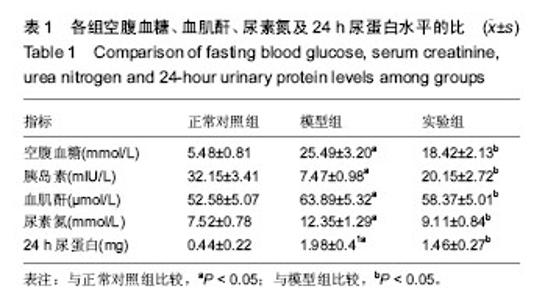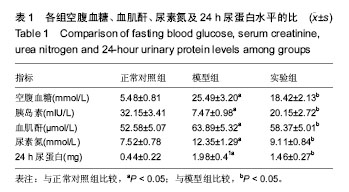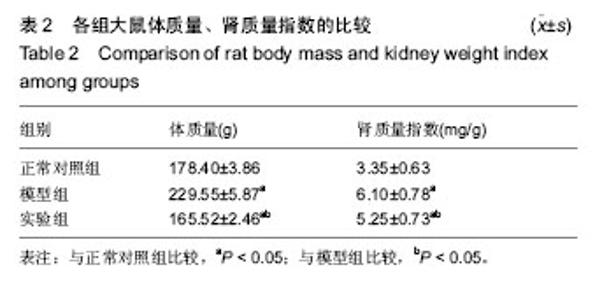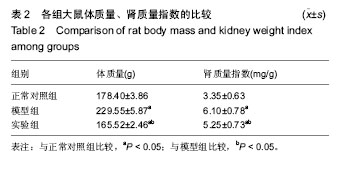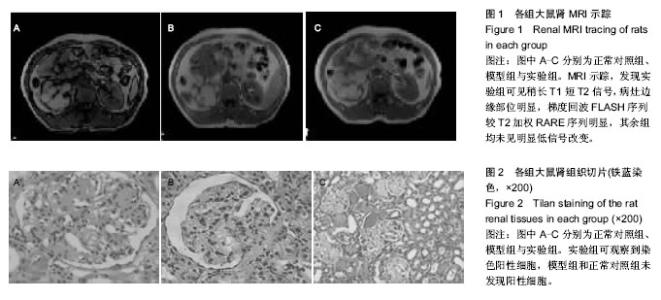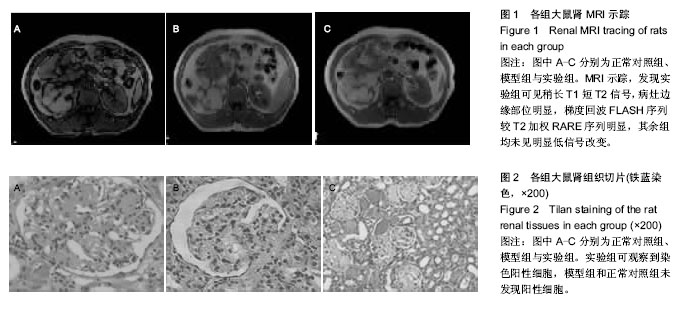| [1] 王彦春,张俊峰,魏殿军,等.胱抑素C和β2-微球蛋白对糖尿病肾病早期诊断的价值及相关性[J].广东医学,2014,12(17):2715- 2717.[2] 李明,陈慧卿,刘迅,等.临床常用肾小球滤过率评估方程在2型糖尿病患者中的效能比较[J].中华糖尿病杂志,2012,4(6):334-339. [3] 尚瑜,王兵.100例老年糖尿病肾病住院患者初诊时情况及危险因素[J].中国老年学杂志,2013,33(15):3576-3577.[4] 卢岚敏.2型糖尿病患者糖尿病肾病相关危险因素分析[J].中国实用医刊,2014,41(3):91-95.[5] 贾晓炜,栾进,张南雁,等.2 型糖尿病肾病患者肾小管功能相关因素分析[J].武警医学,2013,24(5):387-389.[6] 陈仪.糖尿病肾病患者的中医护理[J].中医临床研究,2012,4(5): 103-104.[7] Ivanac-Jankovic R,Lovcic V,Magas S,et al.The novella about diabetic nephropathy.Acta Clin Croat.2015;54(1):83-91.[8] An Y,Xu F,Le W,et al.Renal histologic changes and the outcome in patients with diabetic nephropathy.Nephrol Dial Transplant.2015;30(2):257-266.[9] 李梅,石成钢,尹琼丽,等.血液透析与血液透析滤过对糖尿病肾病尿毒症毒素MMS和PENT的清除观察[J].心脑血管病防治, 2014, 3(9):186-188.[10] 付饶,刘渤,张桂红.前列地尔对早期糖尿病肾病患者血管内皮功能的影响[J].中国中西医结合肾病杂志,2015,16(5):446- 447.[11] Collins AJ,Foley RN,Chavers B,et al.United States Renal Data System 2011 Annual Data Report: Atlas of chronic kidney disease & end-stage renal disease in the United States.Am J Kidney Dis.2012;59(1 Suppl 1): A7, e1-420. [12] Teng B,Duong M,Tossidou I,et al.Role of protein kinase C in podocytes and development of glomerular damage in diabetic nephropathy.Front Endocrinol (Lausanne).2014;5:179. [13] 范思均,何守志.血管内皮生长因子A的选择性剪接与眼内新生血管的生成[J].中华眼科杂志,2011,47(4):373-377.[14] Lu Y,Gong Y,Lian J,et al.Expansion of Endothelial Progenitor Cells in High Density Dot Culture of Rat Bone Marrow Cells. PLoS One.2014;9(9):e107127.[15] Ching YH,Sutton TL,Pierpont YN,et al.The use of growth factors and other humeral agents to accelerate and enhance burn wound healing.Eplasty.2011;11(e41):429-449.[16] atenaude A,Parker J,Kglsan A.Involvement of endothelial pro-genitor cells in tumor vascularization.Micmvasc Res. 2010,79(3):217-223.[17] 蒋素华,邹建洲,刘红,等.通过短时间预缺血改变肾小管上皮细胞命运诱导肾脏缺血耐受[J].中华肾脏病杂志,2011,27(1):198- 202.[18] Lee PS,Poh KK.Endothlia progenitor cells in cardiovascular diseases.World J Stem Cells.2014;6(3):355.[19] Sambataro M,Seganfreddo E,Canal F,et al.Prognostic significance of circulating and endothelial progenitor cell markers in type 2 diabetic foot.Int J Vasc Med.2014;2014: 589412.[20] 陈蓉,余辉,贾振字,等.小鼠骨髓源性内皮祖细胞培养鉴定及7.0T磁共振成像研究[J].中华医学杂志,2011,91(37):2644-2647.[21] 贾振宇,陈骏,滕皋军,等.小鼠脾源性内皮祖细胞培养及7.0T磁共振单细胞成像初探[J].中华心血管病杂志,2010,38(2):166-170.[22] Gai M,Merlo I,Delliepiane S,et al.Glycemic pattern in diabetic patients on hemodialysis:continuous glucose monitoring (CGM) analysis.Blood Purif.2014;38(1):68-73.[23] Chen HZ,Chou CY,Hsiao YT,et al.Patients with diabetic as the primary kidney disease have a worse survival than patients with comorbid diabetes in chronic hemodialysis patients. Nephrology:Carlton.2015;20(3):155-160.[24] Waanders F,Visser FW,Gans RO.Current concepts in the management of diabetic nephropathy.Neth J Med.2013; 71(9):448-458.[25] He H,Liu X,Lv L,et al.Calcineurin suppresses AMPKdependent cytoprotective autophagy in cardiomyocytes under oxidative stress.Cell Death Dis.2014;5:e997.[26] Meek RL,LeBoeuf RC,Saha SA,et al.Glomerular cell death and inflammation with high-protein diet and diabetes.Nephrol Dial Transplant.2013;28(7):1711-1720.[27] IIori TO,Wang Y,Blount MA,et al.Acute calcineurin inhibition with tacrolimus increases phosphorylated UT-A1.Am J Physiol Renal Physiol.2012;302(8):F998-F1004.[28] 孙晓茹.糖尿病肾病患者血清25-羟基维生素D和C-反应蛋白变化及意义[J].中国实用医刊,2014,41(21):52-54.[29] 孙永波.糖尿病肾病早期诊断的相关性研究[J].医学综述,2013, 19(11):2039-2042.[30] 周梅生,王立明,韩澍,等.肾移植术后将CCB替换为ARB控制高血压和蛋白尿的效果[J].中华器官移植杂志,2011,32(11): 655-658.[31] 裴国勇.血糖达标且不伴高血压的2型糖尿病患者微量尿清蛋白与动态血压关系探讨[J].中国全科医学杂志,2014,17(10): 1115-1118.[32] 贾晓炜,栾进,张南雁,等.2型糖尿病肾病患者肾功能相关指标的主成分分析[J]武警医学,2013,24(7):597-599.[33] 江奕文.2型糖尿病并发肾病的相关危险因素分析[J].中国基层医药,2014,21(6):892-893. |
